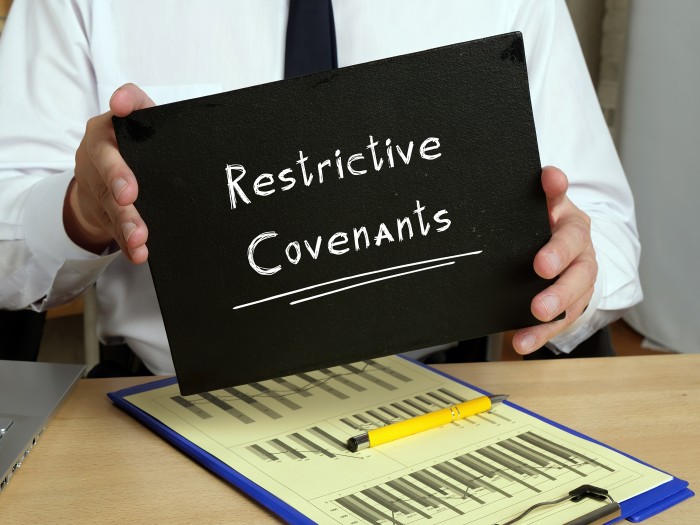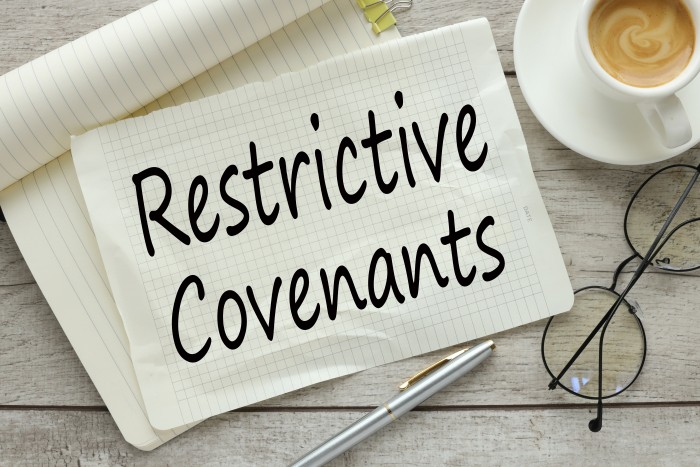
Restrictive Covenant Employment
Introduction to Restrictive Covenant Employment
Understanding restrictive covenant employment is crucial for employers, business owners and managers. These legal agreements play a pivotal role in protecting your business interests. They ensure that your proprietary information, client relationships and competitive edge remain secure, even after an employee leaves your organisation. In my extensive experience as an employment law specialist, I’ve seen how well-drafted restrictive covenants can safeguard a company’s most valuable assets.
What Are Restrictive Covenants?
Restrictive covenants in employment contracts are conditions that restrict an employee’s actions both during and after their tenure with your company. These are not just legal formalities; they are strategic tools to protect your business from potential competitive harm. Think of them as a shield, guarding against the risk of losing clients, trade secrets and staff to competitors.
Why Employers Need Them
As an employer, you invest considerable resources in your employees. From training to accessing confidential information, employees become integral to your business’s success. Without restrictive covenants, you leave your business vulnerable to the risk of employees using that knowledge, contact base, or skills to benefit competitors or start their own competing ventures.
Aligning with Business Objectives
Each restrictive covenant you include in an employment contract should align with specific business objectives. Whether it’s protecting sensitive information, maintaining client relationships, or safeguarding your workforce, these clauses serve as a defence mechanism for your unique business needs.
Types of Restrictive Covenant Employment
There are several types of restrictive covenants you can employ to protect your business. Each serves a specific purpose and addresses different aspects of potential risk.
Non-Compete Clauses
A non-compete clause prevents former employees from working with competing businesses for a set period within a certain geographic area. This ensures that your competitors do not directly benefit from the skills or knowledge your former employee gained while working for you.
Non-Solicitation Agreements
Non-solicitation agreements are essential to safeguard your client base and workforce. These prevent former employees from poaching your clients or persuading your current employees to join a competing business or venture.
Confidentiality Agreements
Confidentiality agreements protect sensitive business information. They restrict employees from sharing proprietary information, trade secrets, or other confidential data during and after their employment.
- Non-compete clauses protect against direct competition.
- Non-solicitation agreements secure your clients and workforce.
- Confidentiality agreements guard sensitive information.
- Consideration of reasonable time frames and geographic scope is crucial.
- Tailor each covenant to your specific business needs.
Incorporating these different types of restrictive covenants into your employment contracts, you create a robust legal framework. This framework not only protects your business interests but also fosters a secure and trustworthy working environment.
Legal Considerations for Enforcing Restrictive Covenants
In my professional experience, understanding the legal framework for enforcing restrictive covenants is vital for every employer. This knowledge ensures that the covenants you include in your contracts are not only fair but also legally binding. The key lies in balancing your need to protect your business with the rights of your employees.
Enforceability: A Balancing Act
The enforceability of restrictive covenants hinges on their reasonableness. Courts will closely scrutinize these clauses to ensure they do not unfairly restrict an employee’s future employment opportunities. As such, they must be reasonable in scope, duration and geographical reach. Overly broad or lengthy restrictions often face legal challenges and may be deemed unenforceable.
Protecting Legitimate Business Interests
For a restrictive covenant to be enforceable, it must protect a legitimate business interest. This can include client relationships, confidential information and the stability of your workforce. The covenant must directly relate to and be necessary for the protection of these interests.
Tailoring to Individual Roles
Each restrictive covenant should reflect the specific role and responsibilities of the employee. Senior employees with access to critical business information may warrant more stringent restrictions than junior staff. This individual approach not only enhances enforceability but also demonstrates fairness and reasonableness in your employment practices.
Legal Developments and Jurisdictional Variances
Stay aware of the latest legal developments and any changes in employment law. The interpretation and enforcement of restrictive covenants can vary and staying informed ensures your policies remain compliant and effective.
Best Practices in Drafting Restrictive Covenants
Drafting effective and legally compliant restrictive covenants is key. It requires a deep understanding of your business needs and a clear strategy to protect those needs without overstepping legal boundaries.
Clarity and Specificity
Each restrictive covenant should be clear and specific. Vague or ambiguous language can lead to misinterpretation and weaken the enforceability of the covenant. Define terms clearly and outline the expectations and limitations in precise language.
Reasonable Duration and Geographic Scope
The duration and geographic scope of the covenant must be reasonable. Consider the nature of your business and the employee’s role to determine appropriate limitations. Excessive duration or geographic reach can render a covenant unenforceable.
Consideration for the Employee
Offering consideration, such as a signing bonus or additional benefits, can enhance the enforceability of restrictive covenants, particularly for existing employees. This shows that the employee receives something in return for agreeing to the restrictions.
Regular Reviews and Updates
Regularly review and update your restrictive covenants to reflect changes in your business, the law and the market. This ensures they remain relevant, reasonable and enforceable.
- Ensure clarity and specificity in the language used.
- Set reasonable durations and geographic scopes.
- Align covenants with individual roles and responsibilities.
- Offer consideration for agreeing to the restrictions.
- Regularly review and update the covenants.
By following these best practices, you can craft restrictive covenants that effectively protect your business while respecting the rights and freedoms of your employees.
Dealing with Breaches of Restrictive Covenants
As an employer, encountering a breach of a restrictive covenant can be challenging. It’s crucial to handle such situations with a strategic and legal approach. Protecting your business interests while navigating the legal complexities requires a careful balance.
Identifying a Breach
The first step is identifying a breach. This involves recognising when an ex-employee is violating the terms of their restrictive covenant. Whether it’s working for a competitor, soliciting clients, or divulging confidential information, early detection is key. Vigilance in monitoring compliance plays a critical role here.
Legal Remedies and Enforcement
Once you identify a breach, consider the legal remedies available. These may include seeking an injunction to prevent further breaches or pursuing damages for any losses suffered. It’s important to act swiftly and decisively, as delays can weaken your position.
Documentation and Evidence
Gather all relevant documentation and evidence to support your claim. This includes the original employment contract with the restrictive covenant, any correspondence related to the breach and evidence of the breach itself. Solid documentation strengthens your legal position.
Negotiating Settlements
In some cases, negotiating a settlement can be more effective than legal action. This approach can save time and resources while still protecting your business interests. A well-negotiated settlement can often provide a swift and satisfactory resolution.
Policy and Procedure Updates
Learn from each breach to improve your policies and procedures. Regularly updating your approach to restrictive covenants and their enforcement can prevent future breaches and strengthen your legal position.
Future Trends and Changes in Law
Staying ahead of trends and legal changes is crucial for maintaining effective and enforceable employment agreements.
Emerging Trends in Employment Law
Recent trends show a greater emphasis on employee rights and freedoms. This shift can impact how restrictive covenants are viewed and enforced by the courts. Employers must adapt to these changes to ensure their practices remain fair and lawful.
Anticipating Legal Changes
Anticipate and prepare for legal changes. Keeping abreast of proposed legislation and court decisions allows you to adapt your employment contracts proactively. This foresight is vital for maintaining compliant and effective restrictive covenants.
Adapting to the Digital Age
The digital age has brought new challenges in enforcing restrictive covenants, particularly with remote work and digital information sharing. Adapting your covenants to address these modern challenges is essential for effective protection.
Seeking Expert Advice
Consult with legal experts specialising in employment law to navigate these changes. Their insights can guide you in updating your contracts and policies, ensuring you stay ahead of the curve in a dynamic legal landscape.
By staying informed and adaptable, you can ensure that your restrictive covenants continue to protect your business effectively in a changing legal environment.
Restrictive Covenents in Employment
Call John Bloor at EBS Law on 01625 87 4400 if you are an employer and need free Employment Law Advice.

